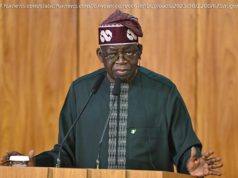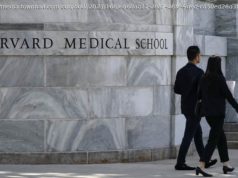Russia has denied any involvement in the March incident and suggested the British security services carried out the attack to stoke anti-Moscow hysteria.
AMESBURY, England, July 5 (Reuters) – Britain demanded on Thursday that Russia provide details about the Novichok nerve agent attack on a former double agent and his daughter after two British citizens were struck down with the same poison.
The two Britons, a 44-year-old woman and a 45-year-old man, were critically ill after an apparently chance encounter with the poison near the site of the March attack on Sergei and Yulia Skripal.
Britain has accused Russia of poisoning the Skripals with Novichok – a nerve agent developed by the Soviet military during the Cold War – in what is the first known offensive use of such a chemical weapon on European soil since World War Two.
Russia, which is currently hosting the soccer World Cup, has denied any involvement in the March incident and suggested the British security services had carried out the attack to stoke anti-Moscow hysteria.
« The eyes of the world are currently on Russia, not least because of the World Cup, » British Home Secretary Sajid Javid said. « It is now time that the Russian state comes forward and explains what has gone on. »
« It is completely unacceptable for our people to be either deliberate or accidental targets, or for our streets, our parks and towns to be dumping grounds for poison, » he told parliament.
The Kremlin said Russia had offered Britain its assistance in investigating the nerve agent attack and had been rebuffed.
Prime Minister Theresa May, speaking alongside Chancellor Angela Merkel during a visit to Berlin, said it was « deeply disturbing » that two more people had been exposed to Novichok, adding her thoughts were with the people of the area.
MYSTERY
In the latest twist in one of the most mysterious poisonings of recent years, the two Britons – who were taken ill on Saturday – were initially thought to have taken an overdose of heroin or crack cocaine.
But tests by the Porton Down military research center showed they had been exposed to Novichok. Britain has notified the global chemical weapons watchdog, the Organisation for the Prohibition of Chemical Weapons (OPCW), about the poisoning.
It is unclear how the two Britons, whose background has nothing to suggest a link to the world of espionage or the former Soviet Union, came into contact with the poison, which is slow to decompose.
Interior minister Javid said the substance that the two people were exposed to was the same variant of Novichok that struck down the Skripals.
Paramedics were called on Saturday morning to a house in the town of Amesbury after the woman, named by media as Dawn Sturgess, collapsed. They returned later in the day when the man, Charlie Rowley, also fell ill.
Amesbury is 11 km (seven miles) north of Salisbury, where Skripal – a former colonel in Russian military intelligence who betrayed dozens of agents to Britain’s MI6 foreign spy service – and his daughter were found slumped unconscious on a park bench on March 4.
CONTAMINATION
Health chiefs said the risk to the public was low, repeating their earlier advice that the public should wash their clothes and use cleansing wipes on personal items.
But the exposure of two British citizens to such a dangerous nerve agent will stoke fears that Novichok could be lingering at sites around the ancient English city of Salisbury.
Andrea Sella, professor of inorganic chemistry at University College London, said Novichok nerve agents were designed to be quite persistent and did not decompose quickly.
« That means that if a container or a surface was contaminated with this material it would remain a danger for a long time, » Sella said.
After the Skripal poisoning, police investigators in protective suits scoured Salisbury. They may return, police said.
The March attack prompted the biggest Western expulsion of Russian diplomats since the Cold War as allies sided with May’s view that Moscow was either responsible or had lost control of the nerve agent.
Moscow hit back by expelling Western diplomats, questioning how Britain could know that Russia was responsible and offering rival interpretations, including that it amounted to a plot by British secret services.
(Additional reporting by Sarah Young, Kate Holton, Elizabeth Piper, William James and Kate Kelland in London, Andrew Osborn and Polina Nikolskaya in Moscow; Writing by Guy Faulconbridge; editing by Gareth Jones and David Stamp)






